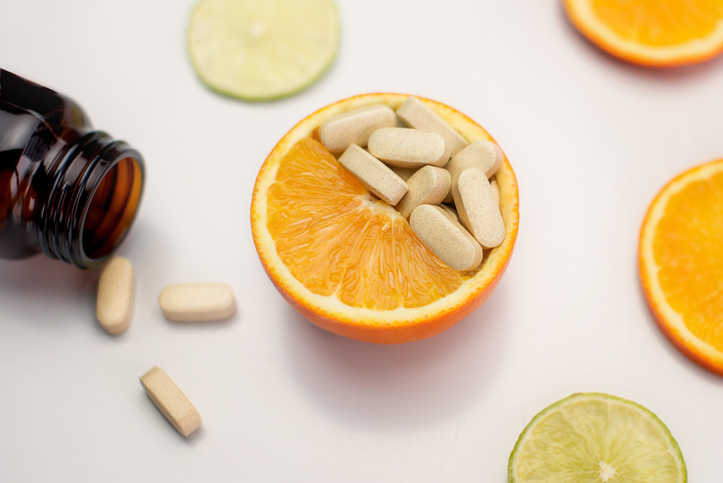Follow the “Anti-supplement” Crowd At Your Own Health Risk

By Joy Stephenson-Laws, J.D., Founder
I continue to be increasingly concerned about what I refer to as the “anti-supplement” movement. It appears that some individuals selectively use research that reinforces their general belief that nutritional supplements have very little, if any, health value and omit credible studies that support the contrary.
The problem with this approach is that it promotes a narrative that can put peoples’ health at risk. This is especially true when it comes to the claim that taking nutritional supplements does not support a healthy immune system. Absent any vaccines or available treatments for COVID-19, the immune system is literally the first and only true defense we have against this virus.
(Check out this pH Labs blog about COVID-19 and vitamin and mineral megadosing).

In my view, it is irresponsible to discourage people from taking steps that could help the immune system better do its job of protecting us from toxins, pollutants and pathogens. If anything, learning about what we can do to proactively protect the immune system should be encouraged!
Now, I am not saying that supplements are a magic bullet when it comes to immune health. The best way to keep our immune system functioning at its best is through exercise, getting enough sleep, reducing stress and eating a healthy diet. Ideally, the latter should include nutrient-dense foods while avoiding high-calorie, low-nutrient foods such as simple carbohydrates, sugary drinks and processed foods. A healthy, nutrient-rich diet will help to ensure that the immune system is getting the critical vitamins and minerals it needs to function at its optimum.
As humans, we should get our essential nutrients from food. Unfortunately, upwards of 90 percent of Americans may have at least one significant nutrient deficiency – a deficiency which, if not addressed and remedied, may negatively impact the immune system’s ability to protect us.
There are a variety of causes for nutrient deficiencies or imbalances. These include skipping meals or a poor diet in general; inadequate absorption of nutrients from food, which can be caused by genetic factors, age, illness or surgery; smoking; excessive alcohol consumption; economic factors that encourage the purchase of “junk food” rather than healthier foods; medications; and/or industrial farming practices that reduce the bioavailability of nutrients in food.
Research at leading institutions has shown that nutrients and substances such as zinc, vitamin C, vitamin A, vitamin D, probiotics, curcumin, selenium, iron, copper, folic acid, astragalus, vitamin B6 and vitamin E, all play a role in maintaining a healthy immune system. Foods to consider that are packed with the nutrients your immune system needs include broccoli, almonds, tomatoes, apples, cauliflower, salmon, sweet potatoes, blueberries, cantaloupe, spinach, bell peppers and wheat germ. Antioxidants in particular are important for fighting environmental toxins and free radicals. Consume antioxidant-rich foods like spinach, apples, carrots, pomegranates, broccoli, kale and blueberries. Green tea is also a great source of antioxidants.
The best way to identify any deficiencies or imbalances in these and other nutrients is to take a nutrient test. Armed with the results of this test, you can then work with a competent healthcare professional to make any necessary dietary changes – including targeted supplementation to fill in any nutritional gaps. Remember that supplements are never meant to replace food, but rather to do as their name indicates, namely, to supplement.
It is also important to only use supplements recommended by a competent healthcare practitioner. Also, be sure to read labels. When the label says, “proprietary blends,” for example, it means you don’t know exactly what is in the product. And don’t assume that just because a store calls itself a “drug store” or “health food store” that their house brands are reliable. Look for indications that the products are good quality and tested by a reputable third party. You may also want to consider IV vitamin drips or injections. These are credible ways to boost your immunity and reduce any potential damages from COVID-19.
Other ways to be proactive?In addition to making sure your immune system is getting the nutrients it needs to perform at its best, you can also support it by getting out in the fresh air and getting moving. We get our vitamin D from the sun, and this nutrient may help fight respiratory infections in general.
Cardiovascular exercise will increase the oxygen delivery to your cells and improve your immune system. Even just 30 minutes of brisk walking may improve your immune system compared to otherwise sedentary time.
You can also:
- Support a healthy liver. The liver has multiple functions in breaking down many nutritional ingredients and metabolizing them into forms useful for individual cells. It helps to detoxify waste and toxins from the body. Simply put, your liver is a key organ for manufacturing the healthy stuff and eliminating the bad stuff. The liver produces many proteins and globulins, which have the ability to neutralize many harmful agents and pathogens. You can strengthen your liver with specific dietary plans, but also with herbs like milk thistle, burdock, turmeric and grape seed extract. Avoid any obvious liver toxins such as alcohol or certain drugs.
- Support a healthy lymphatic system. A recent study underscores the importance of the lymphatic system to support the immune system. Lymph drainage by certain exercises like “rebounding” as well as massages may be helpful.
- Talking with your doctor about whether medications you take may impact your immune system. Many people may take one or more medications to treat chronic conditions. Some of these medications may weaken the immune system. It’s therefore important to talk to your doctor and inquire what you can and should be doing to better protect yourself from viruses and other infections.
- Quit smoking. If you are a smoker, now is definitely the time to quit! Smoking inflames the lungs and suppresses the immune system.
Protect and enjoy your healthy life!
Disclaimer: This article is not intended to provide medical advice. Please consult with your doctor or another competent healthcare practitioner to get specific medical advice for your situation.
The pH professional health care team includes recognized experts from a variety of health care and related disciplines, including physicians, attorneys, nutritionists, nurses and certified fitness instructors. This team also includes the members of the pH Medical Advisory Board, which constantly monitors all pH programs, products and services. To learn more about the pH Medical Advisory Board, click here.







